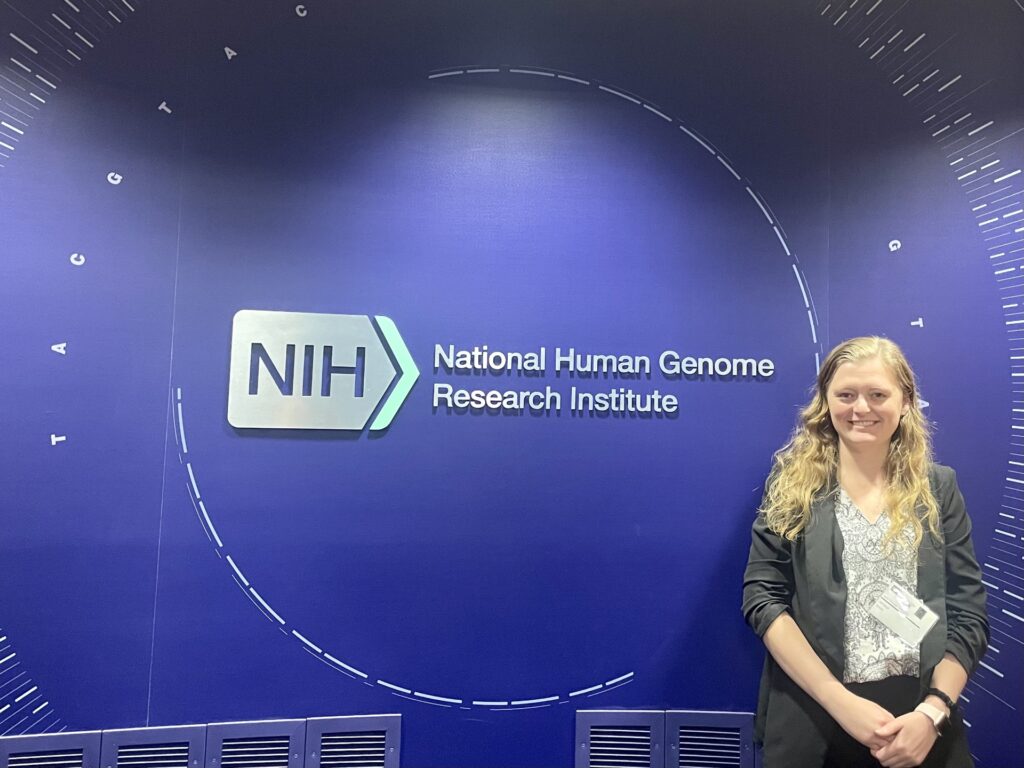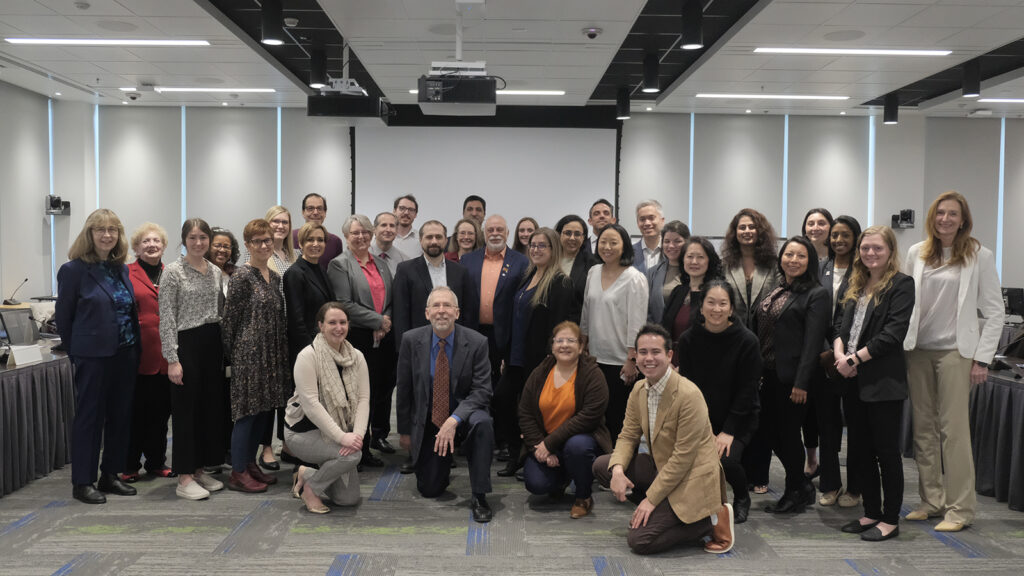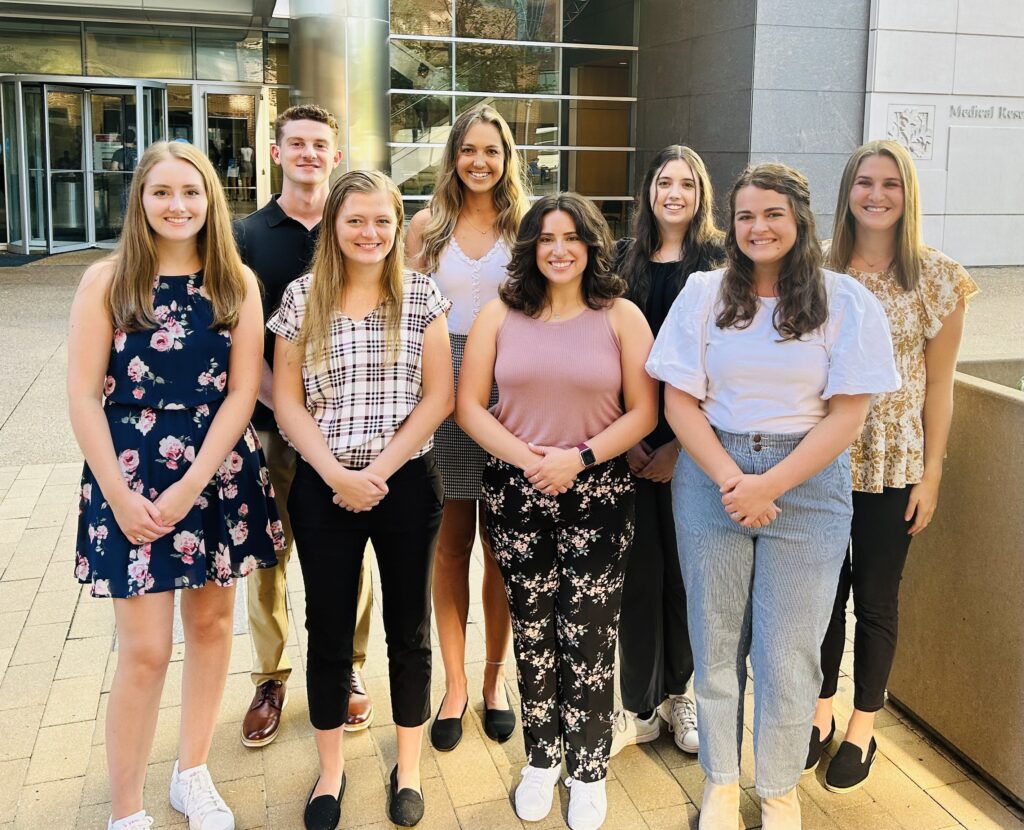Master of Genetic Counseling student Vanessa Smith (c/o 2025) represents VUSM through National Human Genome Research Institute program.

April 25 is National DNA Day, which the National Human Genome Research Institute (NHGRI) celebrates as a “unique day when students, teachers and the public can learn more about genetics and genomics.” The date is significant because it marks the completion of the Human Genome Project in 2003 as well as the discovery of DNA’s double-helix structure in 1953.
For Vanessa Smith, a first-year student in Vanderbilt’s Master of Genetic Counseling (MGC) program, the celebration of teaching, learning and genetics has characterized her entire academic career, most recently on her trip to the National Institutes of Health (NIH) with her professional development cohort.
Formed in 2013, the Inter-Society Coordinating Committee for Practitioner Education in Genomics (ISCC-PEG) scholars program provides students exposure to the broader genomics community and experts in the field, with opportunities to work on genetics/genomics-related education projects under the mentorship of an ISCC-PEG member.
Smith applied to ISCC-PEG in the fall of 2023, early in her first semester at Vanderbilt University School of Medicine (VUSM), seeking an opportunity for another mentored research project other than her thesis. She also wanted to delve further into the teaching side of genomics education: “After I graduated from undergrad, I taught high school for a year and loved that experience,” Smith said. “I hope to be involved in the education of genetic counselors in the future.”
To apply to the ISCC-PEG cohort, Smith had to propose a project that she would complete during her time in the program. Her proposal combined several passions, including genetics education and rare disease advocacy:
“I proposed creating an experiential learning experience in which pre-health students will partner with a rare disease organization, called the Neurodegeneration with Brain Iron Accumulation Disorders Association (NBIADA), to learn about rare genetic diseases and gain advocacy experience,” Smith said. “I will create a framework for this experience including recruitment materials, curriculum, and project examples that will be shared with other patient advocacy organizations to adapt for their own organization.”
Smith’s goal is for her project to benefit all involved: “Students will work on projects, such as the creation of educational materials, which will benefit both the organizations and the students through a hands-on learning experience.” Her experiences as a student and a volunteer have informed Smith’s knowledge of the organization’s and health sciences students’ needs: “I am on the board of trustees for the NBIA Disorders Association and recognize the need for volunteers as well as the need of pre-health students to gain unique experiences in the process of pursuing and applying to graduate or medical school.”

A highlight of her membership in the ISCC-PEG was attending the organization’s annual meeting earlier this month at the National Institutes of Health in Bethesda, MD. The meeting began with the opportunity to meet Dr. Eric Green, director of the National Human Genome Research Institute (NHGRI) of the NIH. The remainder of the day-long meeting consisted of presentations from second-year scholars as well as strategic planning and networking opportunities. Next year, Smith will be among the presenters, discussing her NBIADA experiential learning project.
For Smith, every step toward this opportunity on a national stage has been characterized by those same passions for education and advocacy. After majoring in biology with minors in chemistry and Spanish, then teaching high school students, Smith, originally from Frankfort, IL, moved with her husband to Nashville in 2020 and welcomed her daughter soon after in 2021. Already enjoying her new city, she hoped to land at VUSM on Genetic Counseling Match Day. “I was so excited when I matched to Vanderbilt,” Smith said. “I have great professors and supervisors that are invested in my learning and growth, and are supportive of my endeavors in research and taking on additional opportunities such as the ISCC-PEG program.”

After completing her MGC, Smith hopes to work as a pediatric genetic counselor and continue her work in the rare disease community. “I would also like to become a supervisor or professor for a genetic counseling program,” Smith adds. “I would love to start my career here in Nashville because I love the city.”
“Vanessa brought with her a strong commitment to work alongside the communities most impacted by rare disease,” said Vanderbilt MGC Program Director Martha Dudek, MS CGC. “Her passion for others and engagement in advocacy work is tremendous. We are grateful and proud of how she has represented the VUSM MGC degree program through her participation in ISCC-PEG Scholars Program.”